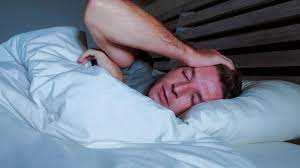The ADHD-Insomnia Connection: A Deeper Look
August 12, 2024 - Reading time: 8 minutes

As a psychologist specializing in ADHD, I've observed that sleep issues are not just a side effect of ADHD, but often a core component of the disorder itself. The relationship between ADHD and insomnia is complex and multifaceted, affecting a significant portion of those diagnosed with ADHD.
Let's break down the prevalence of sleep issues in individuals with ADHD:
| Age Group | Percentage with Sleep Issues |
|---|---|
| Children | 25-50% |
| Adults | Up to 70% |
These statistics underscore the pervasiveness of sleep problems in the ADHD population. But why is this connection so strong?
Factors Contributing to ADHD-Related Insomnia
- Circadian Rhythm Disruption: Many of my patients with ADHD report feeling most alert and productive late at night. This misalignment with societal norms can lead to chronic sleep deprivation.
- Hyper-Focus and Time Blindness: The ability to focus intensely on engaging tasks can be both a blessing and a curse. I've had patients lose entire nights to projects or hobbies, unaware of the passage of time.
- Cognitive Hyperarousal: Racing thoughts and an overactive mind can make it challenging to wind down for sleep. One patient described it as "a mental circus that never stops performing."
- Delayed Sleep Phase Syndrome: Research suggests that individuals with ADHD are more likely to have a delayed sleep phase, meaning their natural sleep-wake cycle is shifted later than the typical pattern.
Here's a breakdown of common sleep issues reported by my ADHD patients:
| Sleep Issue | Percentage of ADHD Patients Affected |
|---|---|
| Difficulty falling asleep | 75% |
| Restless sleep | 60% |
| Early morning awakening | 40% |
| Daytime sleepiness | 55% |
Treatment Approaches: A Multifaceted Strategy
Addressing sleep issues in ADHD requires a comprehensive approach. Here are some strategies that have proven effective:
- Cognitive Behavioral Therapy for Insomnia (CBT-I): This targeted therapy helps patients identify and change thoughts and behaviors that interfere with sleep. Success rates for CBT-I are impressive:
| Outcome | Percentage of Patients |
|---|---|
| Improved sleep quality | 80% |
| Reduced sleep medication use | 60% |
| Long-term maintenance of improvements | 70% |
- Medication Management: Contrary to popular belief, stimulant medications used for ADHD can sometimes improve sleep quality. However, timing is crucial:
| Medication Timing | Effect on Sleep |
|---|---|
| Morning dose | May wear off by bedtime, allowing for easier sleep onset |
| Evening dose | Can help some individuals quiet racing thoughts |
| Split dose | May provide coverage throughout the day without interfering with sleep |
- Sleep Hygiene Optimization: Simple changes can yield significant results. Here's a table of sleep hygiene practices and their reported effectiveness among my ADHD patients:
| Sleep Hygiene Practice | Percentage Reporting Improvement |
|---|---|
| Consistent sleep schedule | 65% |
| Dark, cool bedroom | 70% |
| No screens before bed | 55% |
| Regular exercise | 60% |
| Limiting caffeine | 50% |
- Chronotherapy: For some patients, gradually shifting their sleep schedule can help align their natural rhythm with societal expectations. This process typically takes 2-3 weeks and has shown promising results:
| Outcome | Percentage of Patients |
|---|---|
| Improved sleep onset | 70% |
| Better daytime alertness | 65% |
| Reduced ADHD symptoms | 55% |
The Role of Technology in ADHD Sleep Management
While technology often gets a bad rap for interfering with sleep, certain apps and devices can be beneficial for individuals with ADHD:
- Sleep Tracking Apps: These can provide valuable insights into sleep patterns and quality. Many of my patients find the data motivating and reinforcing.
- White Noise Machines: For those easily distracted by environmental noises, white noise can create a consistent sound environment conducive to sleep.
- Smart Lighting: Programmable lights that dim gradually in the evening and brighten in the morning can help reinforce a healthy sleep-wake cycle.
Here's a table showing the adoption and perceived effectiveness of these technologies among my ADHD patients:
| Technology | Adoption Rate | Perceived Effectiveness |
|---|---|---|
| Sleep tracking apps | 70% | 65% |
| White noise machines | 55% | 75% |
| Smart lighting | 40% | 60% |
A Personalized Approach
While the connection between ADHD and insomnia is clear, it's important to remember that each individual's experience is unique. What works for one person may not work for another. As a psychologist, I advocate for a personalized approach that takes into account the specific symptoms, lifestyle, and preferences of each patient.
By addressing sleep issues as a core component of ADHD treatment, we can help individuals not only improve their sleep quality but also better manage their ADHD symptoms during waking hours. The journey to better sleep may be challenging, but with the right strategies and support, restful nights are achievable for those with ADHD.

